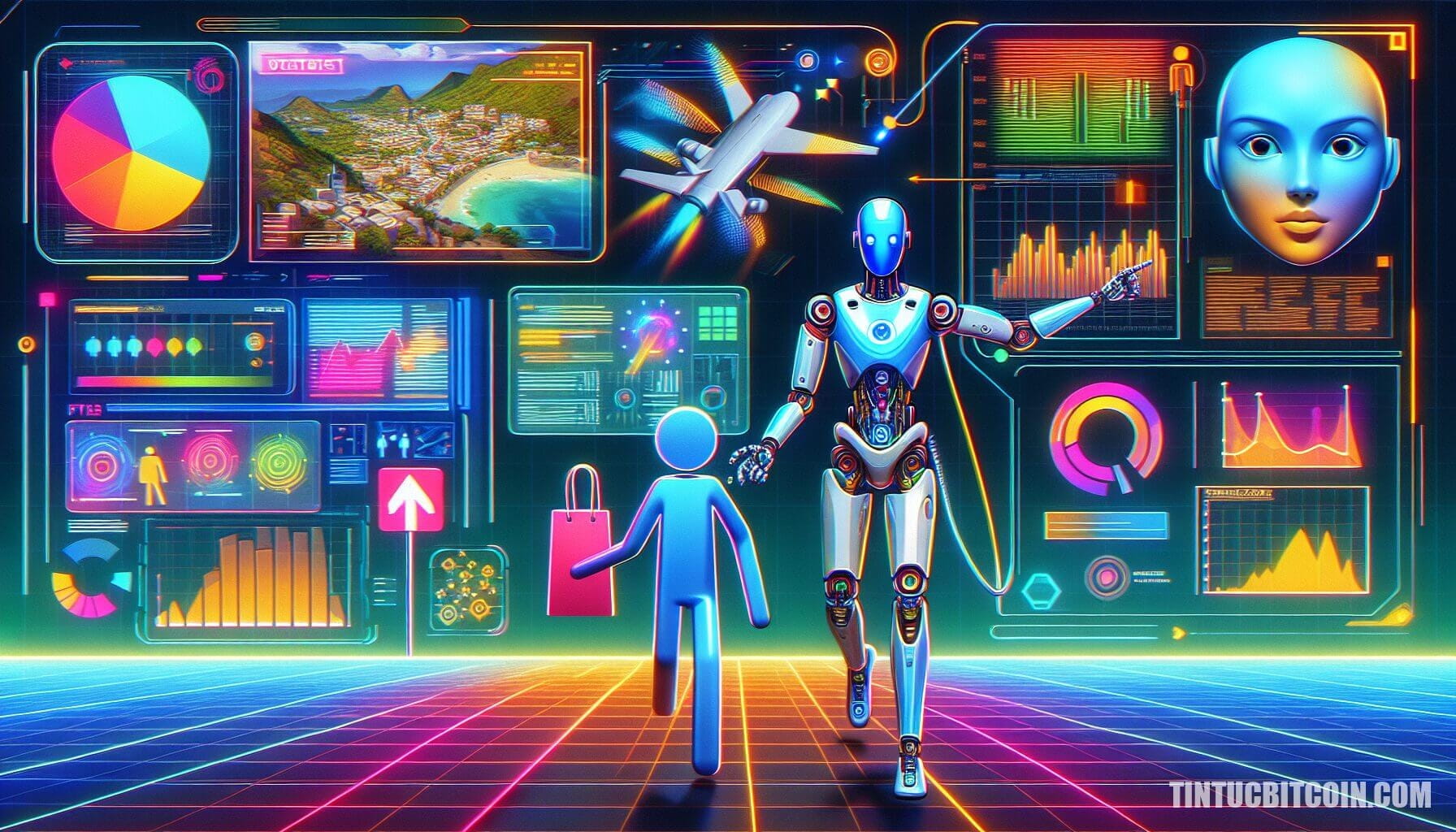
AI-generated videos are causing great confusion, making tourists believe in non-existent destinations.
AI-generated fake videos not only deceive viewers but also have real consequences as travelers spend hours traveling to nonexistent locations. This issue raises concerns about trust and the level of control in the digital age.
MAIN CONTENT
AI videos can create images of non-existent destinations, deceiving tourists.
The rate of deepfake attacks has increased by more than 2,000% in the past three years, causing significant damage.
AI has a wide-ranging impact on life, from finance to personal reputation and the tourism industry.
How is AI video making travelers believe in non-existent locations?
Technology experts agree that today's AI videos can create extremely realistic and convincing images, blurring the line between real and fake. A Malaysian couple spent hours traveling to a small town they believed was the Kuak Skyride cable car station after watching a TikTok video created by AI, despite the fact that this location does not exist.
This indicates that AI technology can directly influence user behavior, causing unforeseen real-world consequences. When viewers do not recognize signs like the Veo3 logo (Google's AI video creation tool), they easily place complete trust in the fake content.
AI-generated fake videos do not require manipulation by criminals; the technology itself allows for the creation of sophisticated images that anyone can fall for.
Statement from Mr. John Smith, CEO of Veo3, 03/2024
How has the rate of deepfake scams increased in recent years?
Reports from the identity verification service company Signicat (02/2025) show that deepfake attacks have increased from 0.1% three years ago to 6.5% today, equivalent to a 2,137% increase. This figure indicates that 1 in 15 fraud cases is related to this form.
A real-world example is Mr. Steve Beauchamp, an 82-year-old American who lost $690,000 from his retirement fund by believing in a deepfake video of Elon Musk promoting a fake investment. This not only caused financial damage but also raised concerns about cybersecurity and personal information security.
"The image of Elon Musk in the video looks just like him, making it impossible for me to doubt."
Steve Beauchamp shared with The New York Times, 2024
How has AI impacted various aspects of life and tourism?
Not only on a personal level, but AI has also caused significant damage to businesses like Arup, the British engineering group that lost over $25 million due to being scammed by deepfake in a conference video. Additionally, incidents like a principal being threatened due to a fake video also highlight the widespread negative impact of this technology.
Tourism, already affected by the trend of 'selfie tourism', is now further distorted by fake destination images on social media. UNESCO has warned about the risk of travelers visiting locations solely to take shareable photos without truly experiencing them, diminishing cultural value and real experiences.
For example, compare the impact of AI deepfake across different industries
Sector Case Study Loss (USD) Impact Level Personal Finance Mr. Steve Beauchamp was scammed through a deepfake video of Elon Musk $690,000 Loss of money, decline in personal reputation Engineering Company Arup was scammed through a deepfake CFO conference $25 million Significant financial loss, loss of business trust Education Principal received threats from a fake video of controversial statements Not specified Damage to reputation, disruption of the educational environment Tourism Tourists lost in a non-existent location due to AI video Time, lost costs Diminished experience and reputation of destinations
Frequently asked questions
How easily can AI videos deceive viewers?
Current AI technology creates videos with extremely high quality, convincing even those who are technically uninformed, leading to the belief in false information.
How to identify AI-generated videos?
Be aware of signs like the logo of the video creation tool, examine the source of the release, and look for reviews and feedback from other users to verify authenticity.
Has the rate of deepfake attacks increased significantly lately?
According to the Signicat 2025 report, deepfake attacks have increased by more than 2,000% in three years, accounting for about 6.5% of all fraud cases.
How does AI affect the tourism industry?
AI contributes to creating fake destination images, leading to misunderstandings and diminishing the true experience of travelers, while distorting the image of destinations on social media.
What should users be mindful of when receiving video information online?
There is a need to enhance verification, not to blindly trust every image, especially those related to destinations or investment advertisements, to minimize the risk of being scammed.
Source: https://tintucbitcoin.com/ai-danh-lua-khach-du-lich-gia/
Thank you for reading this article!
Please Like, Comment, and Follow TinTucBitcoin to stay updated on the latest cryptocurrency market news and not miss any important information!

